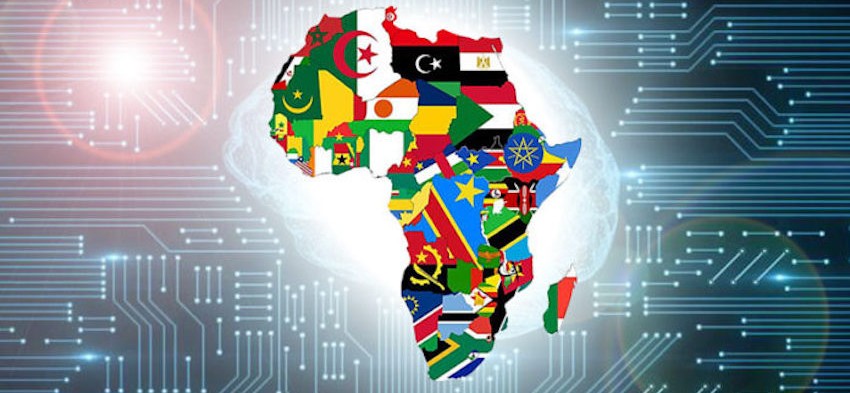By: Prof. Rédha TIR*
(3 Minutes Read)
Introduction
Two forums. Two continents. One warning.
The Atlantic Council’s Global Energy Forum (Washington, June 17–18, 2025) and the EAGE 2025 (Toulouse, June 3–6, 2025) did not merely offer updates—they issued a call to attention. From policy rooms in Washington to technical labs in Toulouse, a new global map of energy is taking shape. Beneath the buzzwords—transition, resilience, net zero—lie real struggles over power, knowledge, and control.
While Washington exposed the high-level geopolitics of energy transformation, Toulouse showcased the quiet revolution underway in the upstream sector. For emerging regions and energy-rich nations of the Global South, these signals demand a response that is not only adaptive but strategic.
Washington : The Weaponisation of Energy
The Washington forum, under the theme Collaboration, Competition, Security, sent a strong message : energy is not just infrastructure—it is leverage. It underpins national security, regional stability, and economic influence. As old alliances shift and new rivalries emerge, control over energy systems—physical and digital—becomes a geostrategic objective.
Panel discussions addressed the securitization of critical minerals, the geopolitical risks of energy dependence, and the race to localize supply chains for clean technologies. But beneath these debates, a subtler concern emerged: energy is now data. And data is power.
Toulouse : The Rise of Interpretive Intelligence
At EAGE 2025, the conversation moved underground—literally. The emphasis was no longer on where to drill, but how to think. The session Future of Subsurface Innovation highlighted a turning point : exploration is now led by modeling, automation, and machine learning. Real-time imaging, data fusion, and AI-enhanced seismic analysis have transformed upstream workflows.
Geophysics is no longer just about depth. It is about velocity, prediction, and iteration. From geological maps to digital twins, the act of exploring has become less about extraction and more about anticipation. Decisions are made in the cloud, not the core.
This is not just a technological update. It is a paradigm shift.
Power Has Moved: From Resource to Interpretation
The latest S&P Global report, The E&P Industry of the Future – Upstream, reinforces this message. The epicenter of value has moved from access to assets to control of interpretation. Whoever masters the tools to simulate reservoirs, process live data, and model multi-layered risks in real time will set the pace of exploration and production.
This shift carries deep geopolitical implications. Strategic advantage now stems from access to software, trained analysts, proprietary algorithms, and reliable data infrastructure. In this new upstream economy, engineering and geoscience merge with cloud systems and artificial intelligence.
The oil rig is no longer the frontier—the algorithm is.
What This Means for the Global South
For nations in the Global South, the implications are twofold. First, traditional strengths—reserves, pipelines, export terminals—are no longer sufficient. Second, dependency now risks being redefined: not just technological, but epistemological.
To remain relevant in the next energy cycle, countries must build not only their energy infrastructure, but also their interpretive capacity. This means training the next generation of geoscientists, coders, data analysts, and energy strategists. It means investing in upstream research labs as much as in drilling platforms. And it means forging regional alliances around knowledge, not just resources.
The new race is not for barrels—it is for bytes, and for meaning.
The Washington–Toulouse Continuum
These two forums, separated by two weeks, were in fact deeply interconnected. Washington pointed to the strategic risks of dependence on external technologies and expertise. Toulouse revealed where that expertise is now being built and automated. Together, they mark a global realignment—not only of energy flows, but of energy thinking.
This convergence demands a different kind of leadership from emerging economies: one that does not merely adapt to imported paradigms, but seeks to shape alternatives from its own realities and capacities.
Key Takeaways
- The 2025 Atlantic Council Global Energy Forum placed energy geopolitics at the heart of global strategy, emphasizing security and systemic control.
- The EAGE 2025 revealed a shift in upstream innovation—from physical exploration to real-time, data-driven simulation.
- Strategic advantage now lies in mastering interpretation tools—AI, modeling, geophysical data fusion—not just in owning resources.
- Emerging economies must invest in digital infrastructure, scientific training, and regional expertise networks to avoid new dependencies.
- The real energy transition is interpretive: from extraction to anticipation, from resources to meaning.
Conclusion : From Observation to Intention
The takeaway from both Washington and Toulouse is clear: the world is not only transitioning—it is diverging. In this bifurcated energy future, those who understand the interplay of algorithms, infrastructures, and global asymmetries will lead.
For the Global South, this is not a moment for passive alignment or delayed adaptation. It is the time to develop an intentional, knowledge-driven strategy—one that sees the subsurface not just as a geological site, but as a battlefield of meaning and a lever of geopolitical agency.
Dr. Rédha TIR*
Dr. Rédha TIR is an Algerian economist and policy strategist with over two decades of experience in public governance, regional integration, and development advisory. He previously served as Minister-President of Algeria’s National Economic, Social and Environmental Council (CNESE), and held senior roles at the Ministry of Finance and the African Union Commission, where he was Lead Representative on the Pan-African Investment Code programme.





